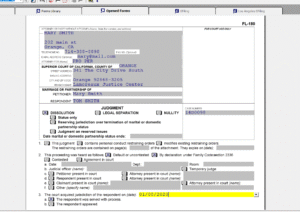In the realm of child custody and visitation rights, the role of the non-custodial parent often comes under scrutiny. A prevalent misconception is that visitation rights are automatically given. However, multiple legal reasons can cause a non-custodial parent to be denied these rights. This article seeks to elucidate these reasons while addressing common concerns like how to handle relocation or travel issues that may limit visitation opportunities, how child support payment affects the visitation rights of the non-custodial parent, and more.

Understanding the Role of the Non-Custodial Parent
A non-custodial parent does not have physical custody of the child. Despite this, they typically hold the right for visitation. The court system’s primary objective is child custody and the best interests of the child. If the child’s safety or emotional well-being is at risk with the non-custodial parent, legal intervention is likely.
Child’s Safety Concerns
Child safety is paramount. If there are credible signs of abuse, neglect, or endangerment of the child by the non-custodial parent, visitation rights can be curtailed. But how does one prove abuse or neglect by the non-custodial parent in court? Evidence can range from medical records, witness testimonies, photographs, to official reports from child protection services.
Substance Abuse Issues
Drug and alcohol addiction of the non-custodial parent can endanger the child. If a history of substance abuse is evident, the court might demand regular drug tests, and failing these tests could result in denied visitation.
Violation of Court Orders
If the non-custodial parent consistently breaches court orders, they risk losing visitation rights. Examples include kidnapping or interfering with the custodial parent’s rights and not returning the child promptly. So, what are the legal consequences of kidnapping or interfering with the custodial parent’s rights? The consequences can range from fines, restrictions on visitation, or even incarceration.
Emotional or Psychological Harm
Parental alienation or the child’s preference, driven by emotional manipulation by the non-custodial parent, might result in restricted visitation. If the child experiences significant distress, the court may intervene.
Incarceration of the Non-Custodial Parent
Incarceration can lead to an automatic pause in visitation. However, the nature of the crime and the duration of the sentence will be considered before making final decisions.
Parent’s Mental Health Issues
Severe mental health issues pose potential risks. If a parent is undergoing treatment and proves they’re stable, the court might reconsider.
Child’s Own Wishes
Sometimes, the child’s preference or a case of parental alienation might influence visitation rights. Especially with older children, if they express a strong desire not to visit, the court might take it into account.
Relocation and Travel Issues
If the non-custodial parent relocates to a distant location, it may affect visitation. This brings up questions like how to deal with relocation or travel issues that may limit visitation opportunities. Typically, visitation schedules might be adjusted, like longer visits during vacations.
Child Support and Visitation Rights
Many wonder how child support payment affects the visitation rights of the non-custodial parent. It’s crucial to understand that child support and visitation are two separate legal matters. While non-payment might result in legal consequences, it doesn’t automatically negate visitation rights.
Modification and Enforcement of Visitation Orders
Circumstances change, leading to questions like how to request a modification or enforcement of visitation orders from the court. Typically, a parent must provide evidence for the necessity of the change. The court will then reconsider based on the child’s best interests.
Supervised vs. Unsupervised Visitation
Depending on the circumstances, the court might grant either supervised or unsupervised visitation to the non-custodial parent. Criteria for this include the child’s safety, the parent’s history, and the child’s comfort levels.
Conclusion
The guiding principle in all decisions is the best interests of the child. Both parents must be aware of their responsibilities and rights. And in challenging times, understanding the nuances, like the difference between supervised and unsupervised visitation or how child support interacts with visitation rights, can provide necessary clarity.




